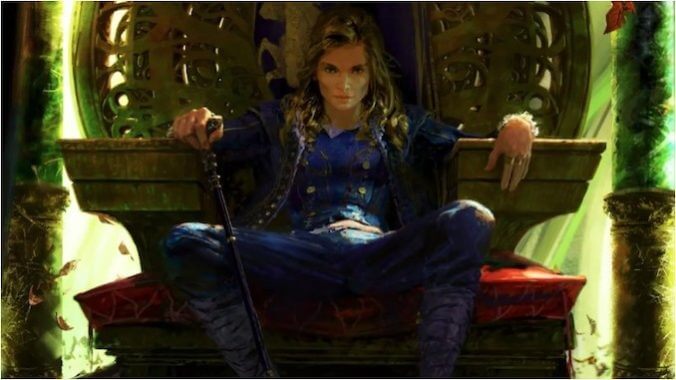Faithless, Unbroken, Revolutionary: The Powerful Second Installment of C.L. Clark’s “Magic of the Lost” Series
Books Reviews
When C. L. Clark’s The Unbroken hit shelves in March 2021, readers were launched into a lush new world of empire and colony—a world that soldier Touraine had to navigate with perfect balance as a person raised and employed by the nation that conquered her people’s homeland. Thrust into direct conflict with people who both looked like her and who still practiced the culture she had been denied by strict imperial schooling, Touraine managed her conflicting feelings deftly, believing that she knew who she was. Or at least, she did—until she and her fellow Sands, soldiers who, like her, came from the colony they now policed, are once again treated as resources to be spent rather than people. By the end of the first novel, Touraine has changed sides: betrayed by her empire, she becomes a traitor, siding with the people to overthrow their colonizers.
But simply choosing a side doesn’t make the world any easier to navigate. In The Faithless, the newly formed Qazāli Council sends Touraine into Balladaire, the center of the empire, as their ambassador. They have chosen Touraine because Balladaire’s princess, whom she once served (and, maybe, loved), has made her fondness for Touraine well known, and the Qazāli believe Touraine will be able to manipulate that affection. They also want to be rid of Touraine’s presence, due to the taboo magic she embraced to overthrow Balladaire’s grip on Qazāl. Touraine, on the other hand, has no desire to go back to Balladaire, not because she fears the nation, but because she fears it will feel like returning home.
The Faithless also continues the saga of Princess Luca’s search for magic, and her quest to take back her throne from her uncle, a regent who has no intention of giving up the crown. Though ambitious, Luca’s heart tends to be in the right place—especially in chapters told from her point of view—and she truly wants what is best for the most people. Deciding what that is, however, is anything but simple. When Luca’s investigation into the native magic of Balladaire, banished when her nation disavowed their gods, reveals uncomfortable truths, Luca has to decide if the price of magic is worth paying, for herself or for her nation.
It was hard to believe that The Unbroken was Clark’s debut novel in 2021, and it’s impressive to watch her meet—and surpass—reader expectations in the sequel The Faithless, which was released almost two years later. On a surface level, the story is an enemies-to-lovers style romance at set against a backdrop of court intrigue and power-hungry nobles grasping for control. But the series feels like layers of sedimentary rock, striated with colors and sheens that show the eras in which they were both born and compressed. The world feels like a palimpsest: Balladaire’s empire is built upon their colonies, which in turn are built upon much longer traditions, devoted to gods whose wills are difficult to ascertain. Whether the scene is a dance or a battle or a simple conversation, that feeling of depth and history is present on every page.
Part of that sense of complexity is absolutely due to how deeply drawn Clark’s characters are—not just Touraine and Luca, whose struggles with knowing themselves, and knowing the people they want to be and become, are so genuinely felt. Clark spends most of her time in the perspectives of these two central characters, but any time readers get a glimpse into another point of view—Fili, the revolutionary daughter of Luca’s former guard; Pruett, Touraine’s former lover and now the leader of the Qazāli military; or Aranen, Touraine’s fellow ambassador and practitioner of magic among them—it’s clear that each of these characters is their own universe, with struggles and decisions to weigh, and ethical dilemmas that make them choose, with their actions, who they will be on the next page.
That’s before even considering the magic, which is as mysterious to the reader as it is to Touraine—denied access to information about her religious heritage in her colonial schooling—and Luca, who is searching for a past her entire nation denies. But the mystery, and the capriciousness of the gods, does nothing to diminish the sheer coolness of the magic when it works. Without spoilers, one of the characters truly comes into her magic over the course of the novel, and her triumph over her enemies is glorious—both from a position of petty revenge (which readers are certain to root for) and from its larger world impact. Even then, though, no victory is without cost, and the end of this novel leads directly into the crises that will come next.
The deadly dance Touraine and Luca play, both with their nations and with each other, is both graceful and tense. Their attraction, both romantically and in the way binary stars might orbit each other, is palpable, both beautiful and terrible in it potency. The romance here is just as complicated as the characters themselves, and neither character can simply feel without knowing all the weight of what has come before. Their relationship will never be easy—and we readers can hope that the two of them will continue their complicated, messy, wonderful dance through the concluding book in the trilogy.
We’ll just have to suffer an agonizing wait between now and then. But I have faith it will be worth it.
The Faithless is available now.
Alana Joli Abbott is a reviewer and game writer, whose multiple choice novels, including Choice of the Pirate and Blackstone Academy for Magical Beginners, are published by Choice of Games. She is the author of three novels, several short stories, and many role-playing game supplements. She also edits fantasy anthologies for Outland Entertainment, including Bridge to Elsewhere and Never Too Old to Save the World. You can find her online at VirgilandBeatrice.com.